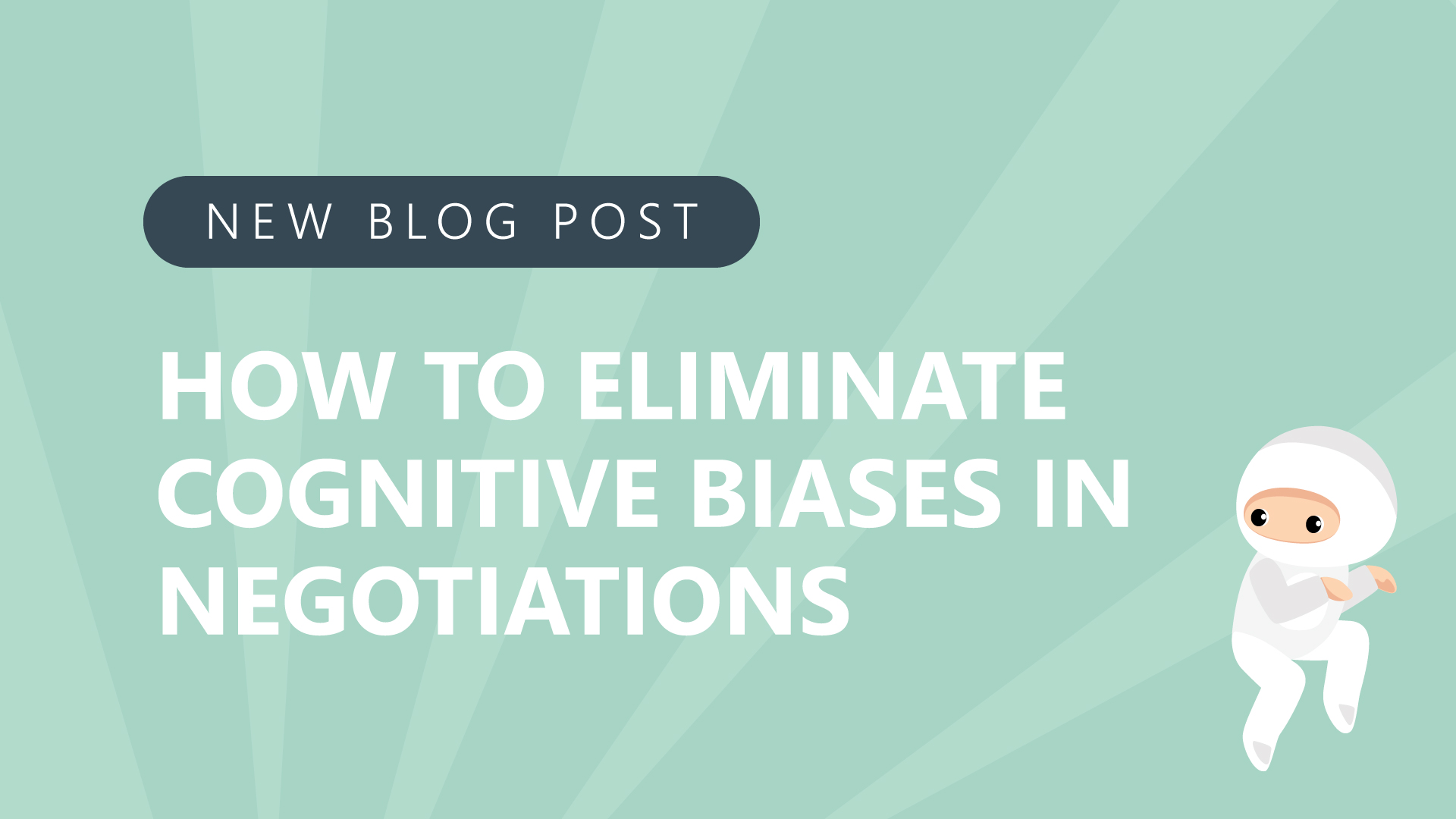A cognitive bias is a systematic error in thinking that affects every decision or judgment that you make. Edmund Zagorin developed a software platform called Bid Ops that understands cognitive bias and factors it into the equation when developing quotes for potential buyers or suppliers. The two of us have a conversation about artificial intelligence and its impact on procurement in a recent episode of Negotiations Ninja.
According to the Bid Ops Website, “Bid Ops is a cloud-based sourcing enablement platform built for procurement professionals by procurement professionals that allows users to easily manage suppliers, collaborate with their team, and run fully autonomous AI supplier negotiations that drive savings”.
The concept of anchoring
If you are the first one to present a quote, you are taking advantage of the cognitive bias of anchoring. We have a tendency to always refer back to the first piece of information we get—in most cases that is a price that we ‘anchor’ to. When you tell bidders what the price will be, you remove the guesswork for them. A 2001 paper by Galinsky, Ku, and Mussweiler determined that whoever makes the first offer determined and anchored the final selling price, which holds true for any product or service category.
Remove cognitively difficult steps
Germany and Austria have a lot of cultural similarities—same language, same food, and they’re geographically next to each other. One area that they wildly differ is in organ donation. 12% of Germans are organ donors compared to over 99% of Austrians. So what is the difference between the two countries? Germany requires you to fill out a separate form to become an organ donor. Austria requires you to complete a form to opt-out of being an organ donor.
A single piece of paper has a transformative impact on the outcome. According to Edmund, if you apply that to procurement and sourcing, Bid Ops removes a cognitively difficult step in the process—the supplier coming up with a quote to preserve their margins but win the business.
The goal is to streamline the process and make it as simple as possible so that the other side isn’t having to continuously use cognitive energy. The goal is to focus all of the energy on one thing: building a good relationship. Whatever tedious tasks you can eliminate in the process, the better.
Bid Ops streamlines the process for you
While the jury is still out on whether or not AI will replace jobs in many industries, Edmund doesn’t believe that it will impact procurement negatively. He designed Bid Ops to streamline the most tedious part of the process so you can focus on what’s important—building relationships with potential buyers. Edmund points out that human interaction will always be a necessity. After all, AI can’t build and foster relationships like a human. You don’t want AI to fumble what could be a long-term strategic partnership.
Listen to this episode of the Negotiations Ninja podcast to learn more about cognitive bias what Edmund believes the future of artificial intelligence looks like in the world of procurement.

